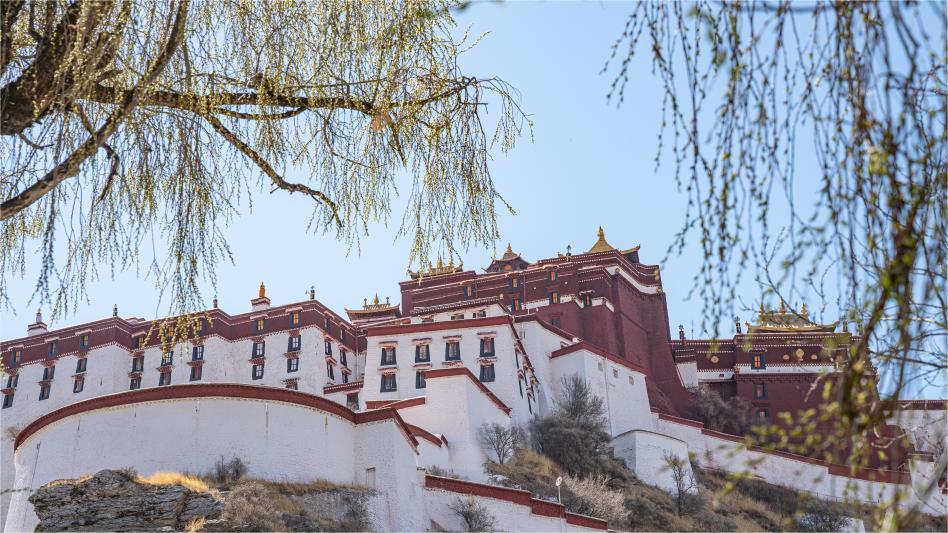Upholding one-China principle an unstoppable historical trend
The separatist activities for "Taiwan independence" are the most destructive elements to the peace and stability across the Taiwan Strait, said Chinese Foreign Minister Wang Yi when answering questions from Chinese and foreign media about China's foreign policy and external relations recently.
To truly safeguard cross-Strait peace, the world must unequivocally oppose "Taiwan independence." The stronger the commitment to the one-China principle is, the greater the guarantee for the peace across the Strait will be, said Wang, also a member of the Political Bureau of the Communist Party of China Central Committee.
This solemn stance on the Taiwan-related issues made by the Chinese government has given a serious warning to the "Taiwan independence" separatist forces and external forces behind them, once again sending a powerful message that the historical trend of upholding the one-China principle is unstoppable.
Taiwan is China's Taiwan. The elections in Taiwan held this January are just local elections in one part of China. The result does not change, even in the slightest terms, the basic fact that Taiwan is part of China. Nor does it change the historical trend of Taiwan's return to the motherland.
Since the elections ended, Chinese Foreign Ministry spokespersons promptly shared the reaction of the international community to the elections. In just a few days, more than 100 countries and international organizations have reaffirmed their commitment to the one-China principle and their support for China in safeguarding its sovereignty and territorial integrity.
The Ministry of Foreign Affairs of Serbia said in a statement that Serbia, in accordance with its consistent policy and advocacy for adherence to the principles of international law and the Charter of the United Nations, supports the one-China principle, that it does not recognize the statehood of Taiwan.
The Hungarian Ministry of Foreign Affairs and Trade reaffirmed Hungary's commitment to the one-China principle in the country's foreign policy.
Pushpa Kamal Dahal Prachanda, Prime Minister of Nepal, said Nepal opposes "Taiwan independence," never allows others to use Nepal's territory to engage in any activities that harm China's interests, and opposes any interference in the internal affairs of other countries.
The spokesperson of the Russian Foreign Ministry Maria Zakharova said that the Russian side opposes any form of Taiwan's independence, and called on all outside forces to refrain from provocative actions undermining regional stability and international security.
The Syrian Foreign Ministry said that Taiwan is an inalienable part of the People's Republic of China, and any election or action carried out in Taiwan should not affect this fact.
Leaders of the Maldives, Sierra Leone and other countries issued joint press communiques or joint statements with the Chinese side during their visits to China, reaffirming their commitment to the one-China principle, opposition to external interference in China's internal affairs, and support of all efforts made by China to achieve national reunification.
These voices of justice and peace reflect the broad consensus of the international community in firmly upholding the UN Charter and the basic norms governing international relations, and embody the trend of the times and of history.
The one-China principle is what underpins peace and stability across the Taiwan Strait. Whatever changes take place in Taiwan, the basic fact that there is only one China in the world and Taiwan is part of China will not change; the Chinese government's position of upholding the one-China principle and opposing "Taiwan independence" separatism, "two Chinas" and "one China, one Taiwan" will not change; and the international community's prevailing consensus on upholding the one-China principle and long-standing and overwhelming adherence to this principle will not change.
A few countries, out of geopolitical considerations and ideological confrontation, have chosen to stand in opposition to the vast majority of countries in the international community, obscuring and hollowing out the one-China principle. While paying lip service to not supporting "Taiwan independence," they announce arms sales to Taiwan and collude with the "Taiwan independence" separatist forces.
The Democratic Progressive Party authority has obstinately adhered to the separatist position of "Taiwan independence" and refused to recognize the one-China principle and the 1992 Consensus. It made provocations in pursuit of "independence" in collusion with external forces. Such acts of undermining the one-China principle are despicable and deplorable. These are the root causes of the tensions across the Taiwan Strait.
The Chinese government and people have a clear stance on such plots and tricks. Whoever engages in "Taiwan independence" on the island will be held accountable by history. Whoever in the world connives at and supports "Taiwan independence" will get burned for playing with fire and taste the bitter fruit of their own doing.
Standing up for the one-China principle is the right thing to do. It has the overwhelming support of the international community and represents the prevailing trend of the world. A total of 183 countries have established diplomatic relations with China based on the one-China principle. Taiwan's number of so-called "diplomatic allies" has been reduced to 12, and these countries only account for less than 0.3 percent of the world's population. It's obvious to see which one represents the mainstream and the general trend.
On Jan. 15 this year, the day after the elections in Taiwan concluded, the Nauru government announced its recognition of the one-China principle and severed the so-called "diplomatic relations" with the Taiwan authorities. The country said it is willing to resume diplomatic relations with China.
On Jan. 24, China and Nauru signed a joint communique on the resumption of diplomatic relations at the ambassadorial level. Nauru's Minister for Foreign Affairs and Trade Lionel Aingimea said during his visit to China that the one-China principle is an irresistible trend in the world.
It is believed that more members of the international community will see the historical trend and choose to establish or resume diplomatic relations with China. The international community's prevailing consensus on upholding the one-China principle will become more solid. The Chinese people's just cause of opposing "Taiwan independence" separatism and external interference and striving for national reunification will win more understanding and support.
Some day, there will be a family photo of the whole international community in which all members uphold the one-China principle. It is only a matter of time.
(Shi Renxuan is an observer of international affairs.)
Photos
Related Stories
- Taiwan sees fewer new births as young adults become reluctant to marry
- Mainland refutes DPP claim on "international waters" in Taiwan Strait
- National reunification unstoppable: mainland spokesperson
- Warning of U.S. CHIPS Act's negative impact on TSMC "not alarmist": mainland spokesperson
- Mainland slams those creating information cocoons in Taiwan
Copyright © 2024 People's Daily Online. All Rights Reserved.









